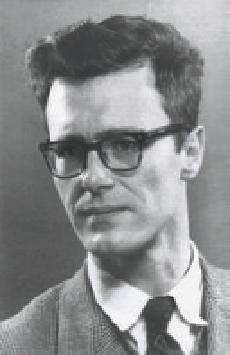Information Technology Reference
In-Depth Information
For a number of years I have been familiar with the observation that the
quality of programmers is a decreasing function of the density of go to
statements in the programs they produce. More recently I discovered why
the use of the go to statement has such disastrous effects, and I became
convinced that the go to statement should be abolished from all “higher
level” programming languages (i.e. everything except, perhaps, plain machine
code).
6
Criticism about the undisciplined use of
go to
statements was one of the fac-
tors that led to the
structured programming
movement of the 1970s. Structured
programming aims to improve the clarity, quality, and development time of
software by identifying coherent blocks of code and using
subroutines
, standard
sets of instructions to perform frequently used operations within a program.
Structured programming uses
for
loops and
if-then-else
constructs as the only
control and decision structures.
Recursion and dynamic data structures
Since the beginning of computer programming, most programming lan-
guages have been imperative languages that tell the machine how to do some-
thing. It is remarkable, however, that one of the earliest high-level programming
languages to be developed was a declarative language, which told the computer
what the programmer would like to have happen and let the machine deter-
mine how to do it. This declarative language was LISP, the brainchild of John
McCarthy, who had spent the summer of 1958 as a visiting researcher in the
IBM Information Research Department. In addition to becoming frustrated with
batch processing and wanting to pursue time-sharing systems, he investigated
the requirements for a programming language to support symbolic rather than
purely numeric computations. These requirements included
recursion
, the ability
B.4.2. Edsger Dijkstra (1930-2002) was one of the pioneers of computer science. From the early
days he was championing a mathematically rigorous approach to programming. In 1972 he
received the Turing Award for his fundamental contributions to the development of programming
languages. He was well known for his forthright opinions on programming and programming
languages.
On FORTRAN:
FORTRAN, “the infantile disorder”, by now nearly 20 years old, is hopelessly inadequate for
whatever computer application you have in mind today: it is now too clumsy, too risky, and
too expensive to use.
B1
On COBOL:
The use of COBOL cripples the mind; its teaching should, therefore, be regarded as a
criminal offense.
B2
On BASIC:
It is practically impossible to teach good programming to students that have had a prior
exposure to BASIC: as potential programmers they are mentally mutilated beyond hope of
regeneration.
B3

Search WWH ::

Custom Search